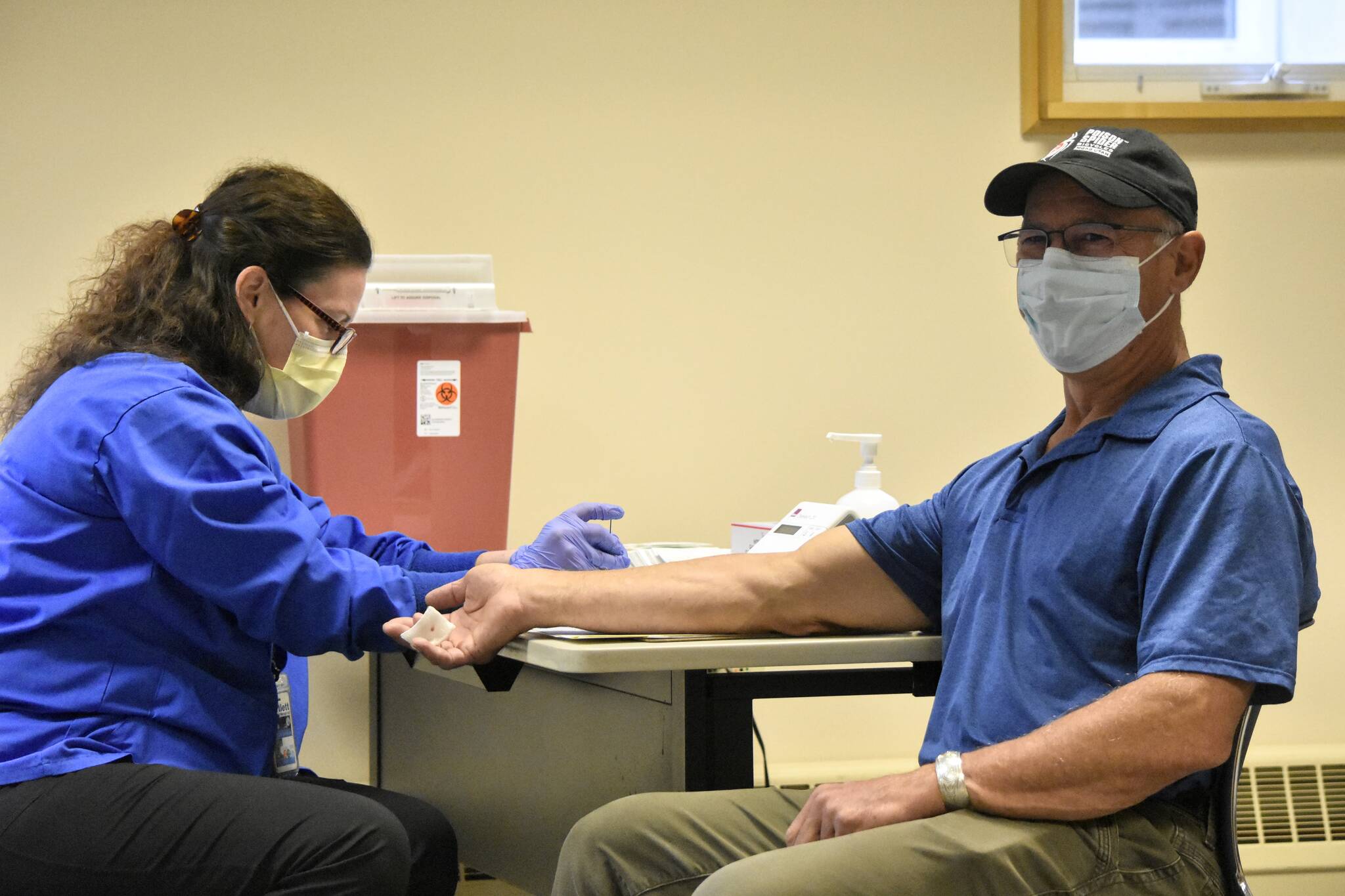From just a small prick of blood on the finger, health care workers at Bartlett Regional Hospital Saturday were able to give patients a quick look at their health. Using a small, table-top machine and a slim vial of blood, hospital staff were able to test patients’ glucose and cholesterol levels in eight minutes.
Bartlett hosted the in-person health screening clinic Saturday, the first of what used to be a regular occurrence before the COVID-19 pandemic.
Autumn Muse, a registered nurse and organizer of Bartlett’s community health programs, told the Empire the hospital used to hold regular health clinics but the pandemic shut those down. But now that Juneau has a high vaccination rate — the city reported a total vaccination rate of over 80% of the eligible population before dose pediatric doses were approved —Muse said she hopes to start offering health clinics regularly.
”I think that definitely COVID has played a part in all of us having less healthy lives and less healthy diets,” Muse said. “We’re seeing increased rates of mental health conditions, with our health and our mental health, COVID has made things more challenging.”
It’s only recently the hospital has started offering in-person health clinics and classes, Muse said, but with some revisions now familiar to the pandemic. In the past, screening clinics, like the one on Saturday, were walk-in only, and sometimes people had to wait for a long time. This year, screenings were made by appointment only and participants had to wear surgical masks provided by the hospital.
[Thunder Mountain girls volleyball heads to state championship]
Fritz Moser, 63, said he’s been to similar health clinics in the past but this weekend’s was his first since the pandemic.
“I usually get a physical,” Moser said, as a nurse collected a blood sample from his fingertip. “But I decided to come in.”
The hospital had 36 appointment slots for the glucose and cholesterol screening, Muse said, where in past years they may have seen between 40 and 50 people in a single clinic. Speaking to the Empire Friday afternoon, Muse said 32 of the 36 appointments were full.
Older people are more likely to attend health clinics, Muse said, but health care providers are trying to encourage younger people to monitor their own health more closely. High rates of obesity in the U.S. led the Centers for Disease Control and Prevention to recommend cholesterol screening for children as young as 9, Muse said.
In an opinion piece in the Washington Post, Alaska’s Chief Medical Officer Dr. Anne Zink said the highlighted alarming shortcomings in the U.S. health care system, including underinvestment in public health and prevention.
The pandemic caused a disruption in health care services and led to many people not getting regular health screenings, said Sydney Hughes, dietitian at Bartlett, who was at Saturday’s clinic to discuss eating habits with patients. The number of reported cancer cases is low nationally, Hughes said, but that’s only because people stopped being screened for cancer during the pandemic.
“First thing is getting people through the door,” Hughes said.
Hughes said she often encourages people to make plans for diet and exercise during winter months when cold weather and short days drive people indoors.
The clinics are free to the public and paid for as part of the hospital’s budget, Muse said, encouraging people to sign-up for future clinics.
Before the pandemic, the glucose and cholesterol clinics were held every three months and Muse said she hopes to go back to that schedule. Muse said she was hoping to have another glucose and cholesterol screening clinic in February, but most health care providers do regular health screenings.
“Bartlett does understand the importance of the community health fairs,” Muse said. “The community is welcome to sign up for these.”
• Contact reporter Peter Segall at psegall@juneauempire.com. Follow him on Twitter at @SegallJnuEmpire.

